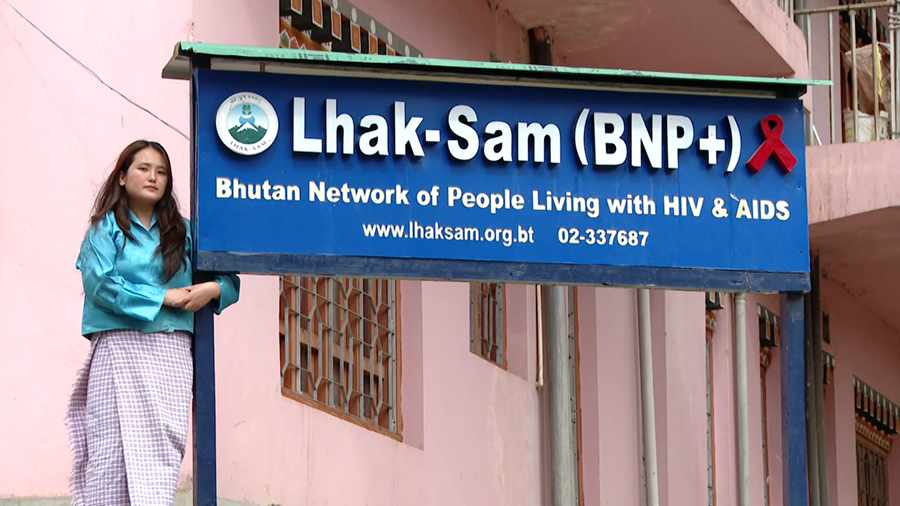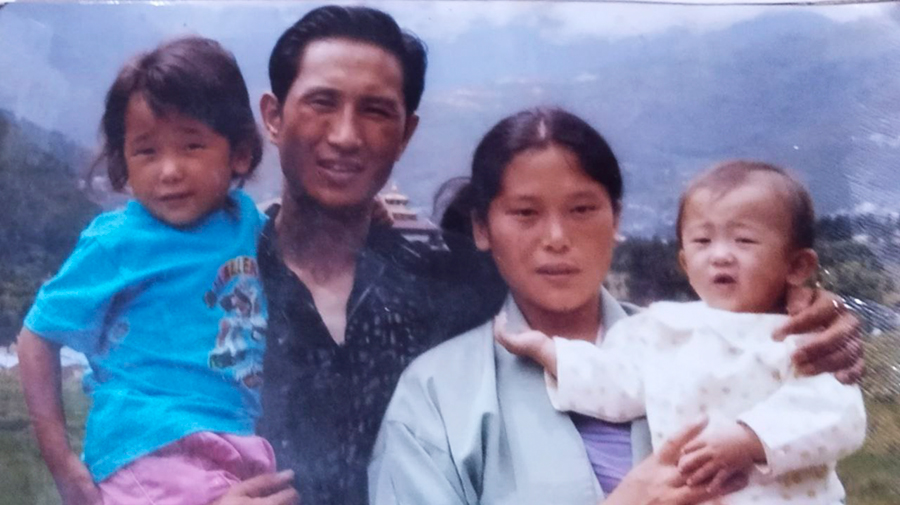
Since Bhutan detected its first case of HIV in 1993, progress has been made in addressing discrimination against those living with the virus. However, many still feel there is much work to be done to fully eradicate misconceptions. Today, we bring to you the story of 21-year-old Tandin Bidha, who faced significant discrimination throughout her childhood as the daughter of parents living with HIV. Now a passionate advocate, Tandin channels her painful experiences into powerful lessons, dedicating herself to educating others about HIV and fighting the stigma that once marked her early years.
 In 2011, Wangda Dorji and his wife took a courageous step by revealing their HIV status on national television. Their goal was to break the silence, educate the public about HIV, challenge stereotypes, and offer hope to others living with the virus.
In 2011, Wangda Dorji and his wife took a courageous step by revealing their HIV status on national television. Their goal was to break the silence, educate the public about HIV, challenge stereotypes, and offer hope to others living with the virus.
Their daughter Tandin Bidha, who was then eight years old, the eldest of the four children was thrilled when she first learned that her parents would be appearing on TV the following day.
“My other three siblings were very young. I was in class three and I was eight years old. My parents told me that they would come on TV. My father said that they would disclose their HIV status and after that people would know that my parents have HIV. They asked if it was okay and I said there was no problem. I said I would be very happy if they came on TV. That was the first time I heard about HIV. As I knew nothing about HIV, I was neither embarrassed nor scared”
But the reality was harsh. The fallout from the public revelation was difficult for Tandin. She recalls feeling isolated, both from her peers and her community.
Thrust into the spotlight, Tandin faced bullying and isolation. People had complained that their children might be at risk of infection if they played with her and her siblings.
Eventually, the family had to vacate their rented apartment in the middle of the night to avoid drawing attention.
Sadly, the stigmatisation extended well beyond their home.
“In my class, no student will sit near me. If somehow, a student sits near me, the one who knew will come and tell the one seated next to me that the chair is infected with HIV. They wouldn’t even care about how I would feel.”
Tandin said she also faced bias from her teachers, whom she had trusted.
The overwhelming stigmatisation reached a point where Tandin felt she could no longer cope and became suicidal. As a result, she had to change schools to escape the relentless discrimination.
Tandin’s experience is not unique. Many like Tandin also face discrimination for being HIV positive to this day. Many families dealing with HIV face the risk of being stigmatised if they reveal their status.
Recently, a businessperson had to close down business because one of the helpers is a person living with HIV. The business owner alleges that a health worker revealed the helper’s status to other people.
“She is someone living with HIV and a health worker knows about her status. That health worker has been going around that she is in the kitchen and she is probably making edible items. I don’t know if this was shared when they had a casual talk or when they were drinking. And now my business is not going well. I had to close down my shop for a while now.”
Stories like this are what fuels Tandin to advocate for the cause of people living with HIV. At just 21 years old, Tandin is dedicated to transforming the narrative and supporting others affected by the disease. She has participated in around eight advocacy programmes so far, sharing her story along the way.
Tandin often highlights that despite living with her parents for 21 years, she remains uninfected by the virus, challenging the misconception that HIV can spread through close contact with a person living with HIV.
As Tandin navigates her future from what she has been through in her past, she aspires to improve the lives of many children like herself who face discrimination just because they are the children of parents living with HIV.
Samten Dolkar
Edited by Kipchu







